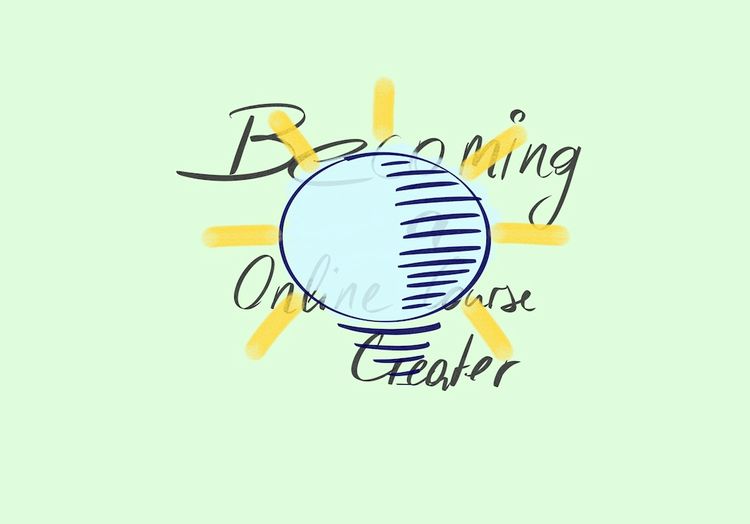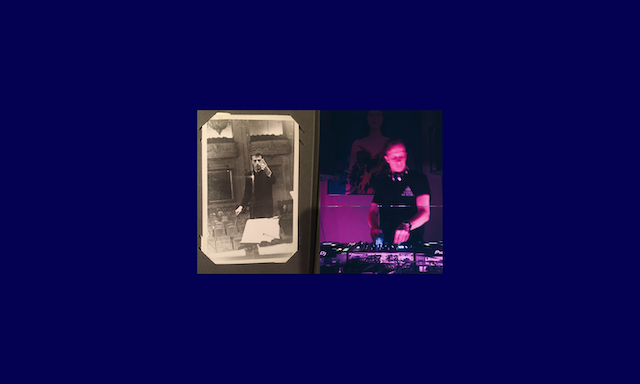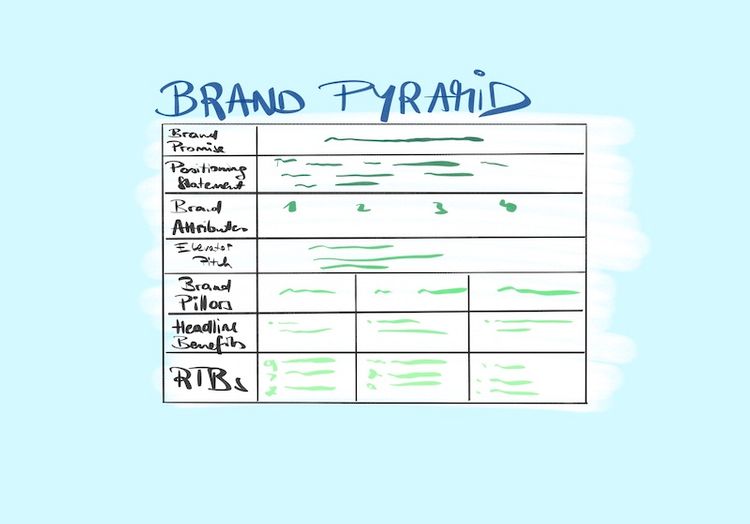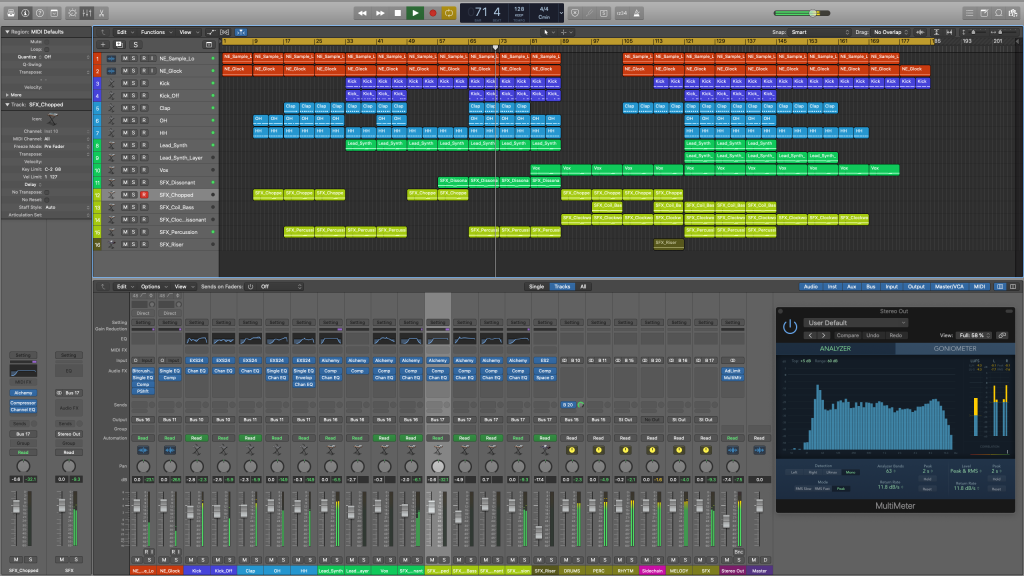What Becoming a Beer Sommelier Has Taught Me About Everything (Part 1)
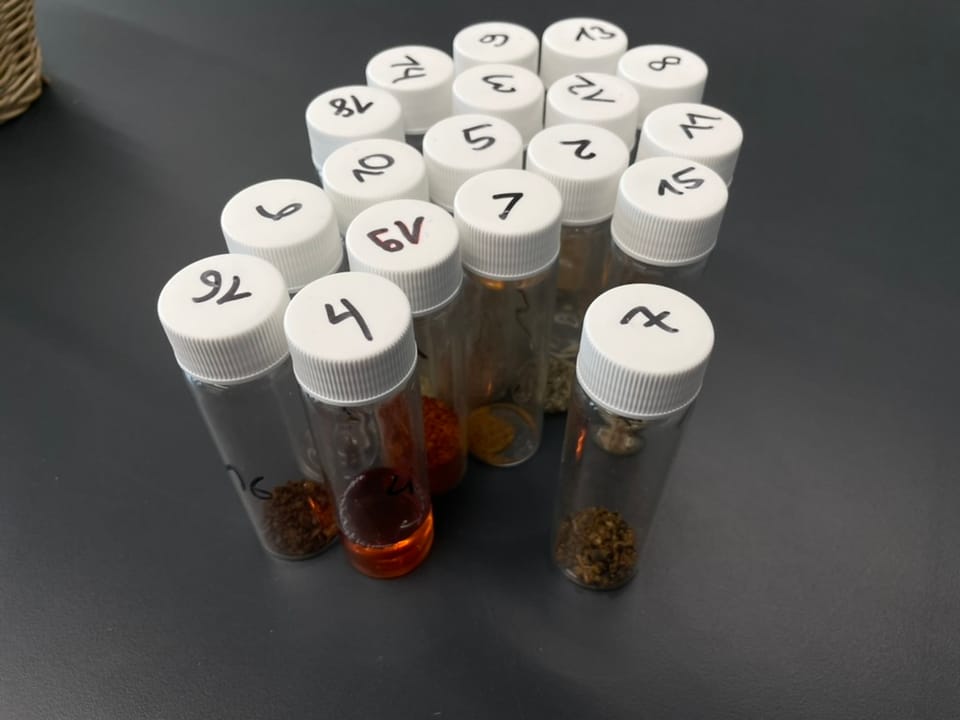
In 2022, I traveled to Bavaria to become a certified Beer Sommelier 🍺
This is my story of the Why, How, and What of this ridiculous journey.
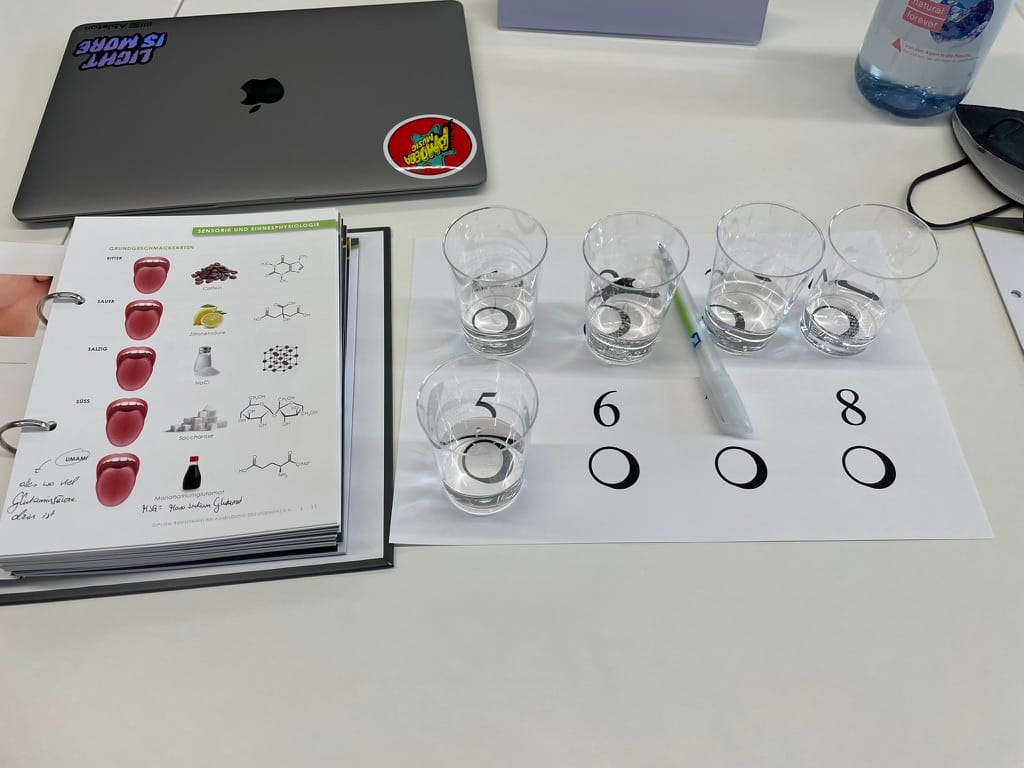
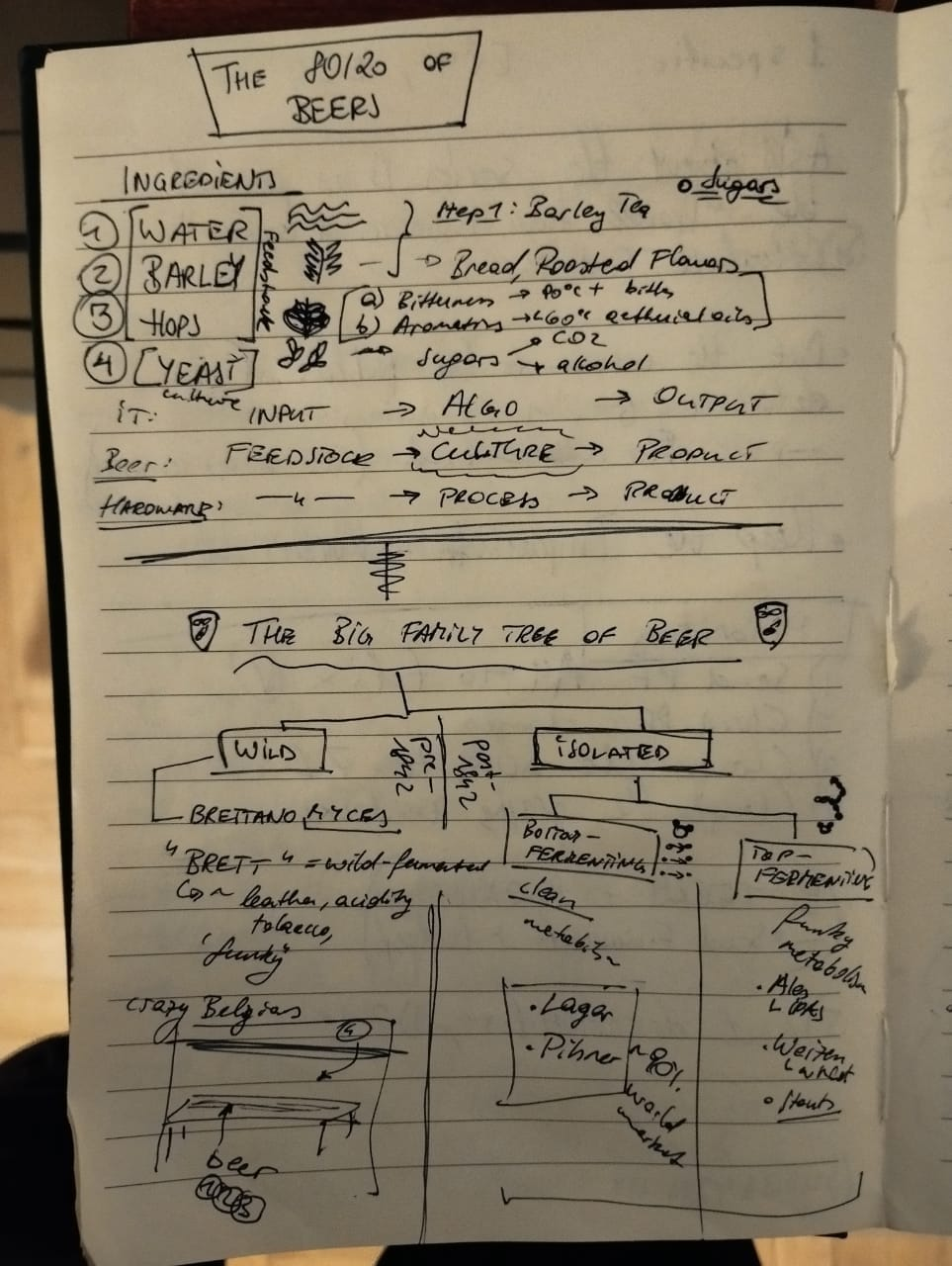
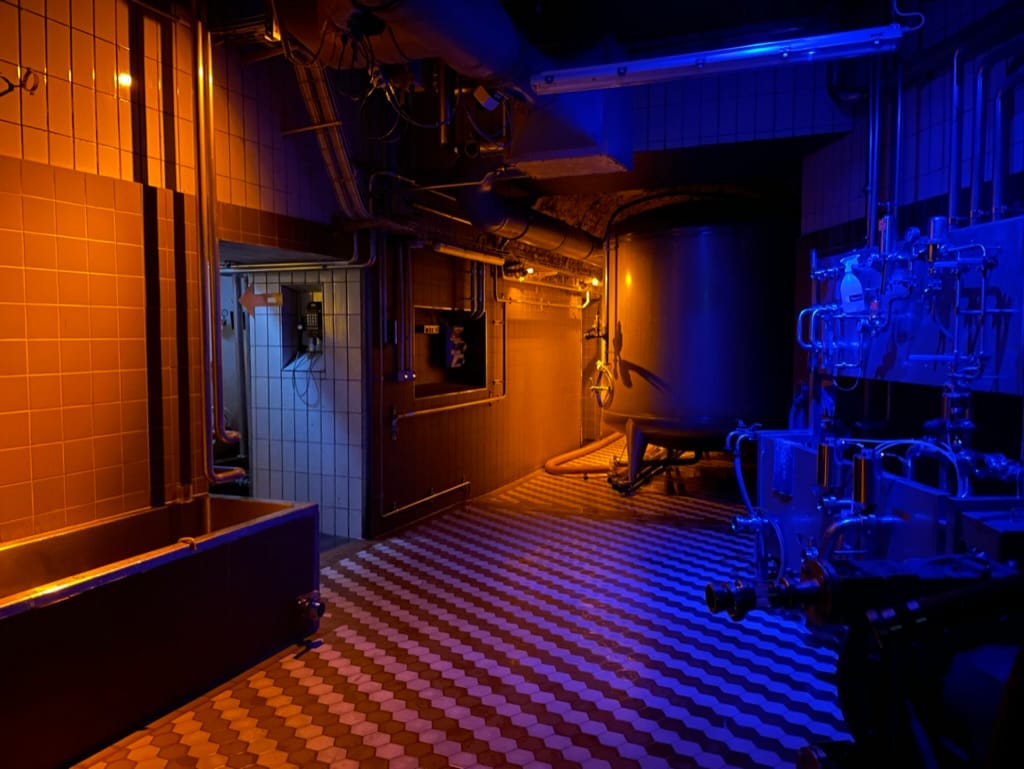
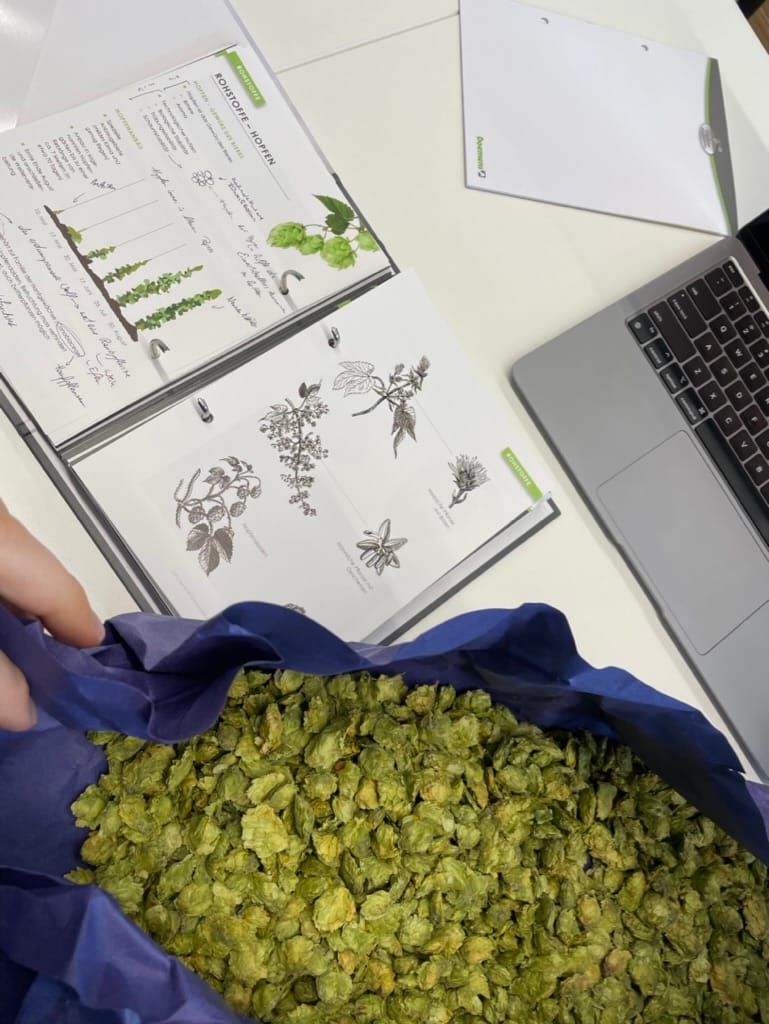
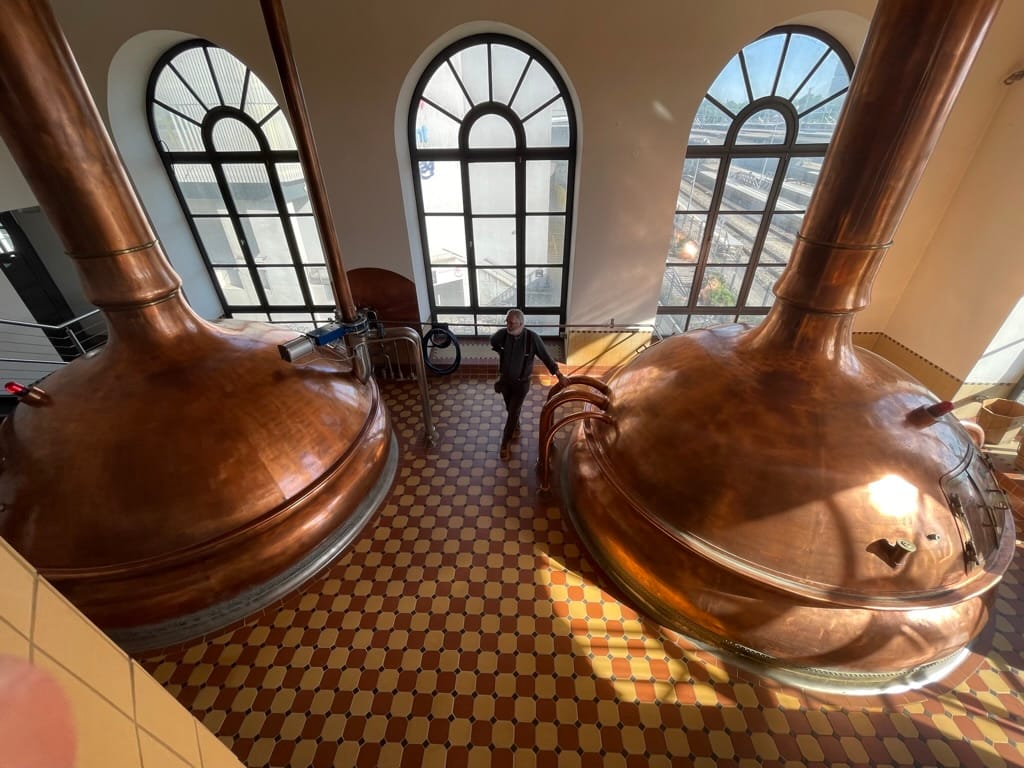
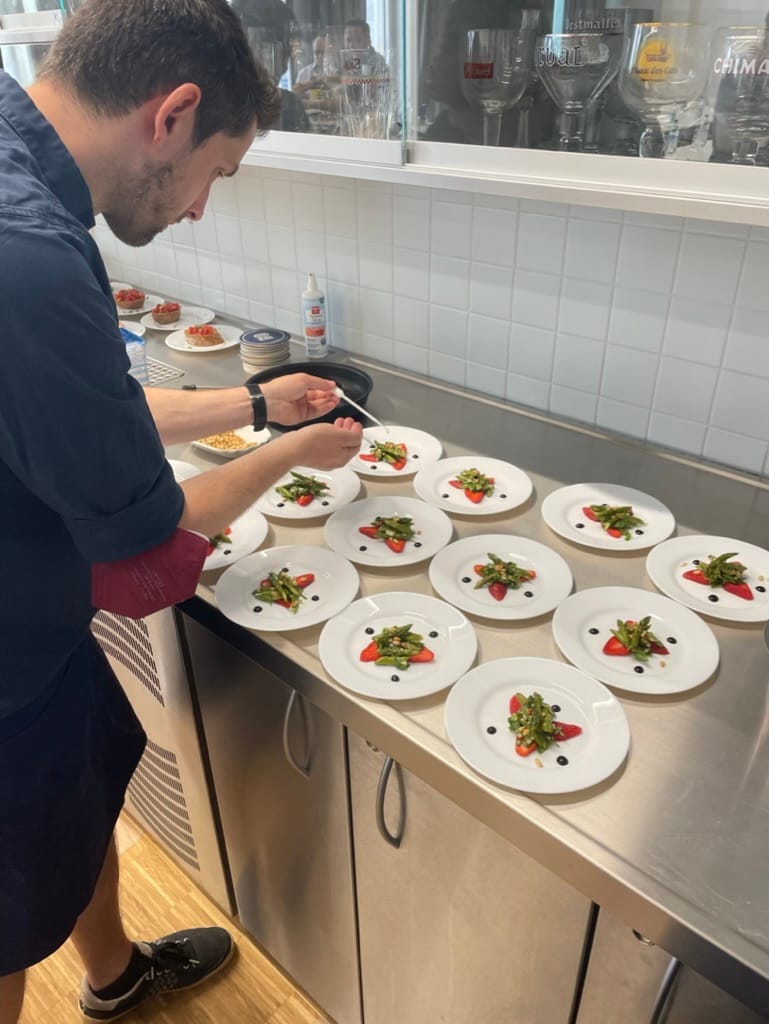
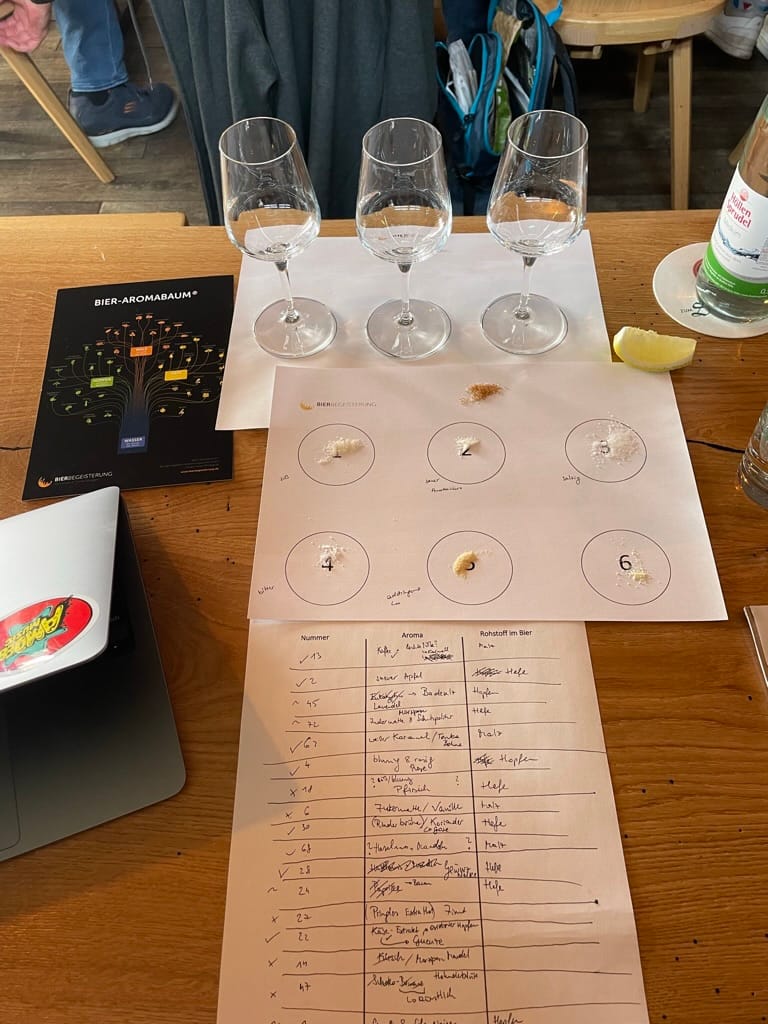
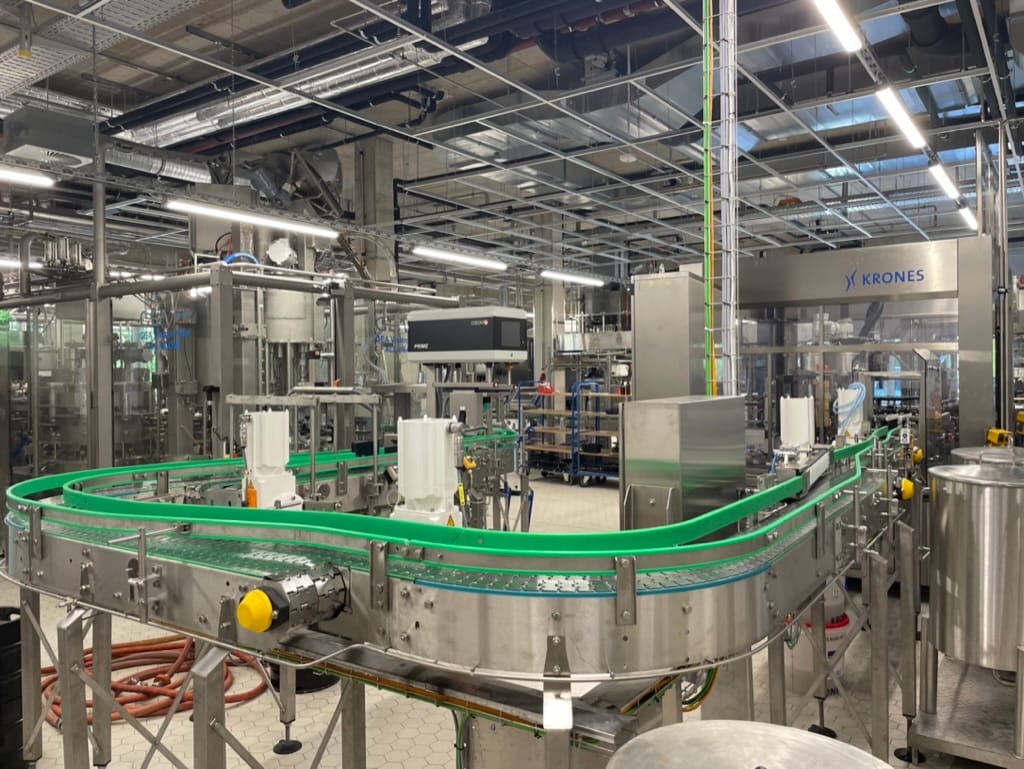
Impressions from the Beer Sommelier training. Top left to bottom right: (1) Aroma samples; (2) my "80/20 of beer" explainer on a napkin; (3) A brewing cellar where most of us almost passed out due to CO2 poisoning; (4) Hops [theoretically and practically]; (5) Birds-eye-view of big'ol' Bavarian brewing tanks; (6) preparation of one of our food pairing dishes for our paring exam; (7) Training the palette; (8) Full-scale production systems at work.
In my own words:
→ What: A sommelier is a trained expert in a particular subject (e.g. wine; beer... but honestly, could be anything? Football jersey sommelier, why not?! 🤷♂️)
→ Why: Their goal is to enhance the consumption experience of an untrained person.
→ How: Through training, a sommelier learns to perceive a particular subject in more detail and with more context.
I'll share more details throughout this series. But for now, this should give you a basic idea.
Fun fact: You can train to become a sommelier for a lot of different things: Water; Distilled alcohols; Fruit juice (wild stuff!); Chocolate; etc.
The Bigger Picture: Why Did I Become a Beer Sommelier?
When people hear that I'm a beer sommelier, they usually have two questions:
- "That's a thing?" → People have heard of wine sommeliers but it usually comes as a surprise that you can do the same for beer.
- "Do you love beer? Is that why you did it?" → Honestly, I didn't particularly like beer (before) and don't really drink much of it right now.
The truth is much more random. So why did I bother?
Back in 2022, when Russia invaded Ukraine, my wife and I decided to host a friend's Ukrainian family in our apartment. This meant we'd have to figure out where to stay between March'22 - June'22.
I had two weeks to fill in May and remembered a Bachelor party during Covid, where we did a remote beer tasting (guided by a beer sommelier). It had been a pleasant surprise and this experience stuck with me. So much so that I googled "beer sommelier," saw that there was a training during exactly those two weeks in May, and asked myself "why the hell not?".
I even convinced an old friend to do the training together. At least, he liked beer.
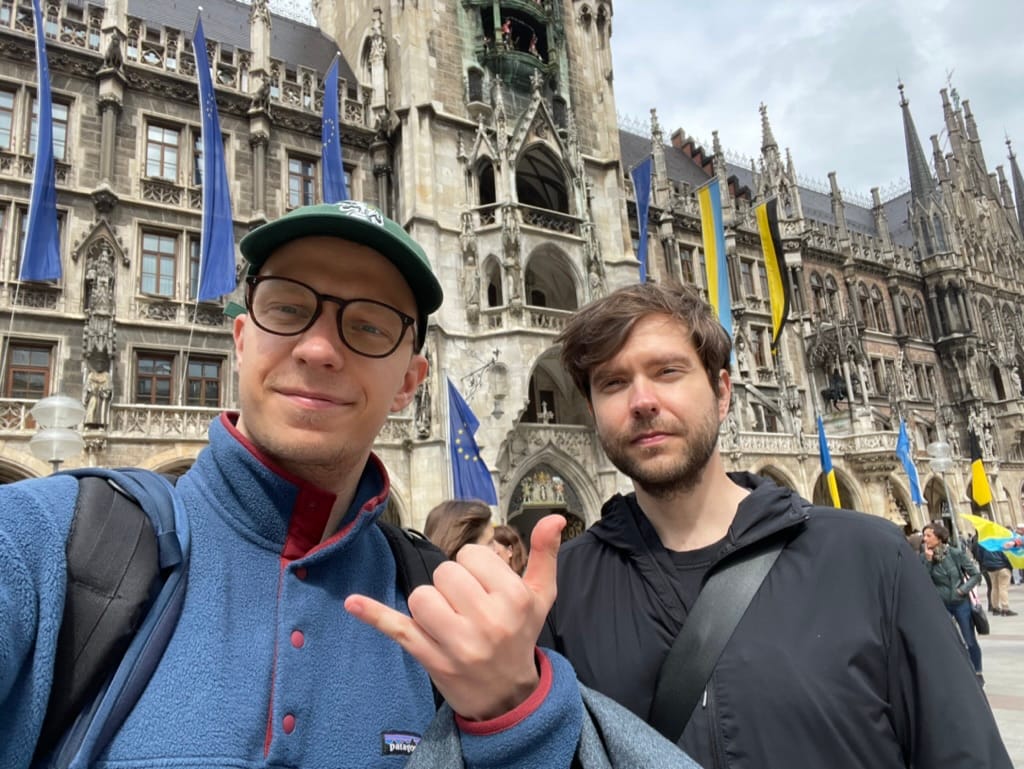
At this point, we had no idea what we had (actually) signed up for.
What followed were two weeks of intense academic and practical training. Days from 8am - 9pm on average (with much longer nights sprinkled in between... hint: we recorded a daily beer podcast).
I will cover the exact structure and content of this training in the second post of this series. For now, I just wanted to tease you with a little sample of the madness.
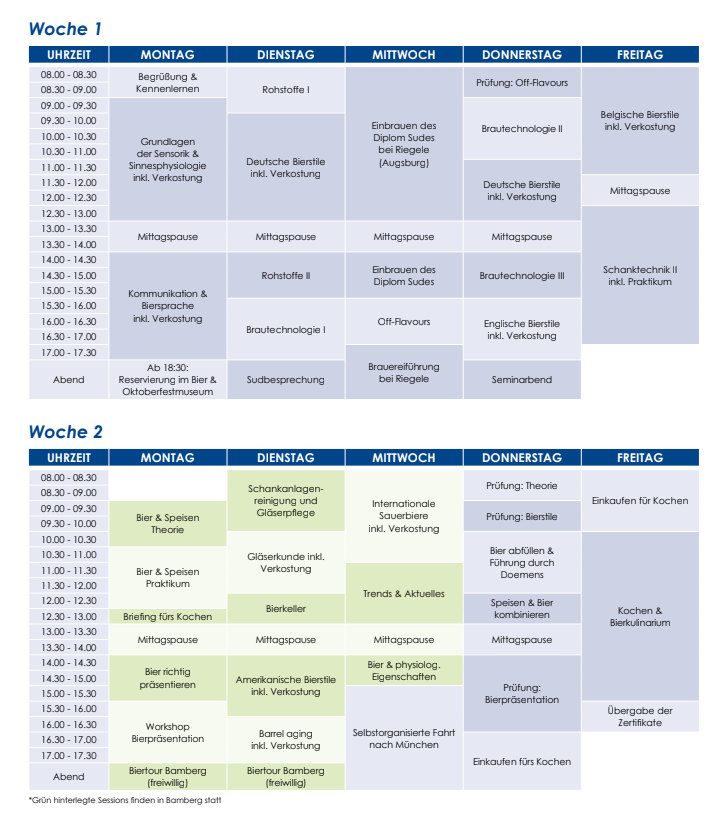
Three years later, I sat down with a blank piece of paper and asked myself: What has remained from that training?
And more importantly: What has remained from that training (beyond the beer-specific knowledge)?
My answers fall into two buckets: (1) taste and (2) learning.
The Art and Science of Taste & Perception
At some point during my first day of training, I had to evaluate these four cups 👇
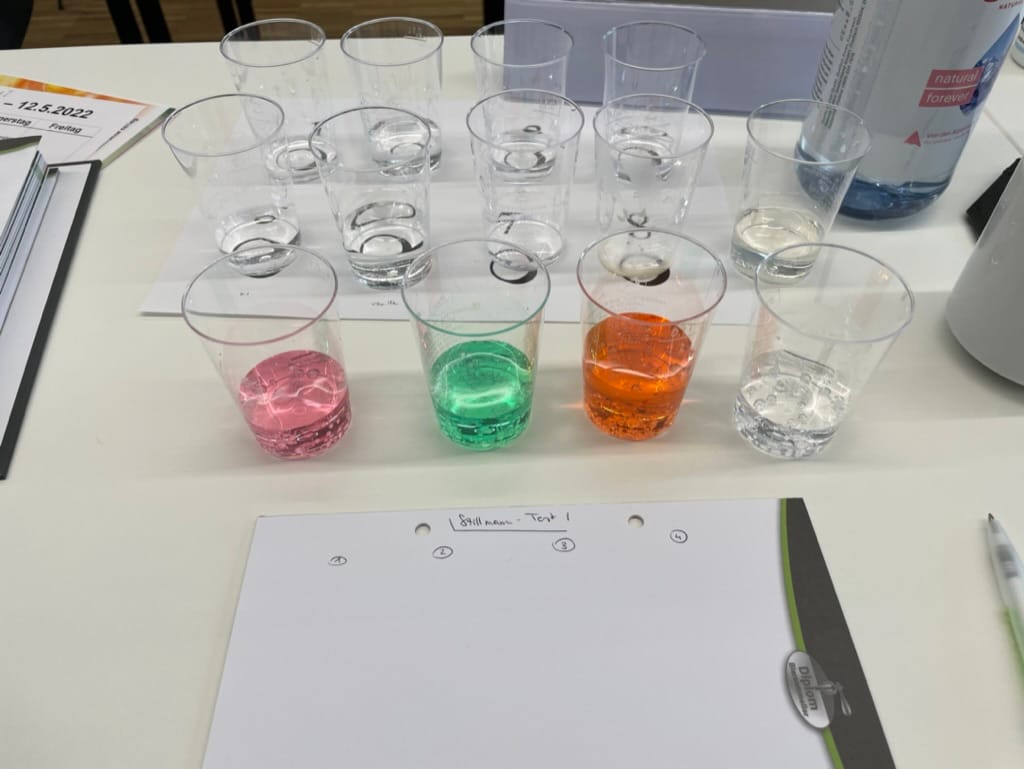
The diligent student that I am, I took my time to truly taste the difference.
After a few minutes of sampling and note taking, it was our turn to present our findings. It was interesting. Some of us had picked up similar notes but overall, everyone seemed to have slightly different descriptions.
My notes said something like this:
- Hint of raspberry; acidic; refreshing
- Mint; feeling of long-lasting flavor; fresh/cold
- Citrus; sweet
- Surprisingly fruity?; lemon?; acidic; sweet
By the time all 18 of us had diligently tried to get the flavors right, it came to the final reveal: We were wrong. Very wrong.
We were wrong because all four drinks were exactly the same beverage. We didn't know that our instructor had added food coloring to different batches of the same liquid.
And it fooled all of us - regardless, whether it was some amateur like me or whether it was a person who had worked decades in the food and beverage industry.
Expectation Impacts Taste
The thing is. That's expected.
There's research showing that visual cues (e.g. food color) can impact taste and flavor perception.
I'll give you another example of a visual cue. Have a look at this picture and pay attention in your mind what your expectation is for these three beers 👇
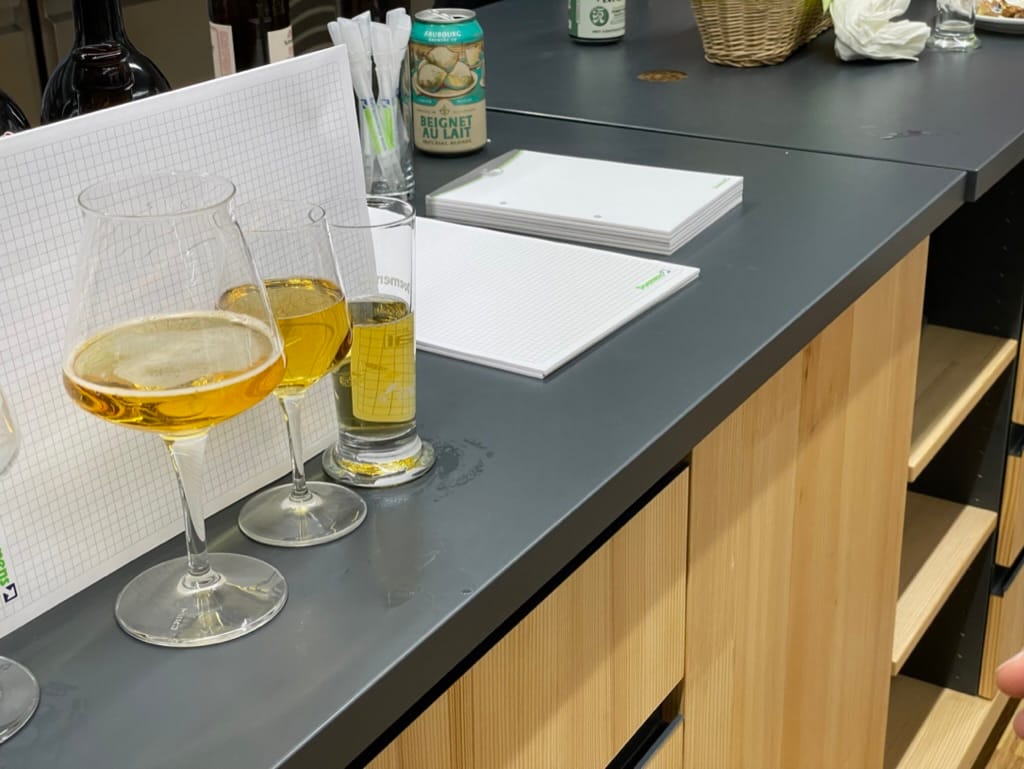
Chances are that you'd expect different flavors. But yet again, these three glasses contain the exact same beer. The only difference being that different glass shapes impact how light travels through the different media (glass & beer) and how it impacts it (refraction; duration of travel through medium; etc.)
The truly fascinating thing is: Even though it's the same product, our expectation shapes how we perceive it. And... since we perceive it differently it effectively turns it into a different product.
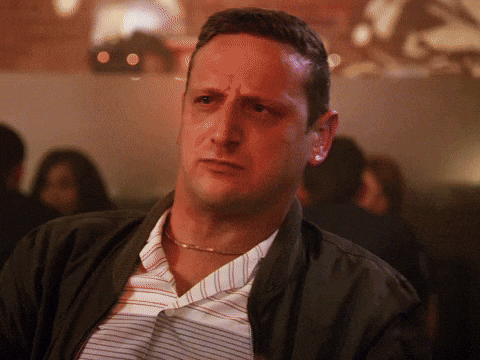
Taste Is Formed In the Brain
The cool thing: It's not only limited to visual cues but any cue (visual; verbal; sensory; etc.)
Let me tell you the Cassis vs. Cat-Piss Story 🐈⬛
A year after having completed the beer sommelier training, I took a friend to a craft beer place. You know, the kind that has a chalk board with beers of the day and strongly opinionated bar staff.
I went up to the bar, looked through their selection and saw that one of the beers was brewed with Simcoe hops. It immediately reminded me of the Simco 3 IPA from Riegele brewery in Augsburg, where we had spent a day during our training. I remembered that this was the beer that really blew me away with fruitiness.
Trying to impress my friend, I asked the bar staff to sample a little bit. Just as I had remembered, it gave me hints of cassis and I ordered two large beers with the Simcoe hop. While pouring the beer from the tap into the glass, the bar staff said: "No idea why you'd order this. It always reminds me of cat piss."
I laughed, paid, and took the two beers over to the table. I gave my friend the spiel about Simcoe hops, fruitiness, and how he should pay attention to the cassis flavor. We cheered, took a sip, and he said: "Hm... you're right. Very fruity. Tastes a lot like cassis." But by that point, I was fighting my own fight. I couldn't believe it.
F*cking hell! Her inception had worked. All I could taste and think of was cat piss.
What happened? The explanation was in my course work: Threshold values. Particularly, when a desirable flavor can turn into an undesirable flavor 👇
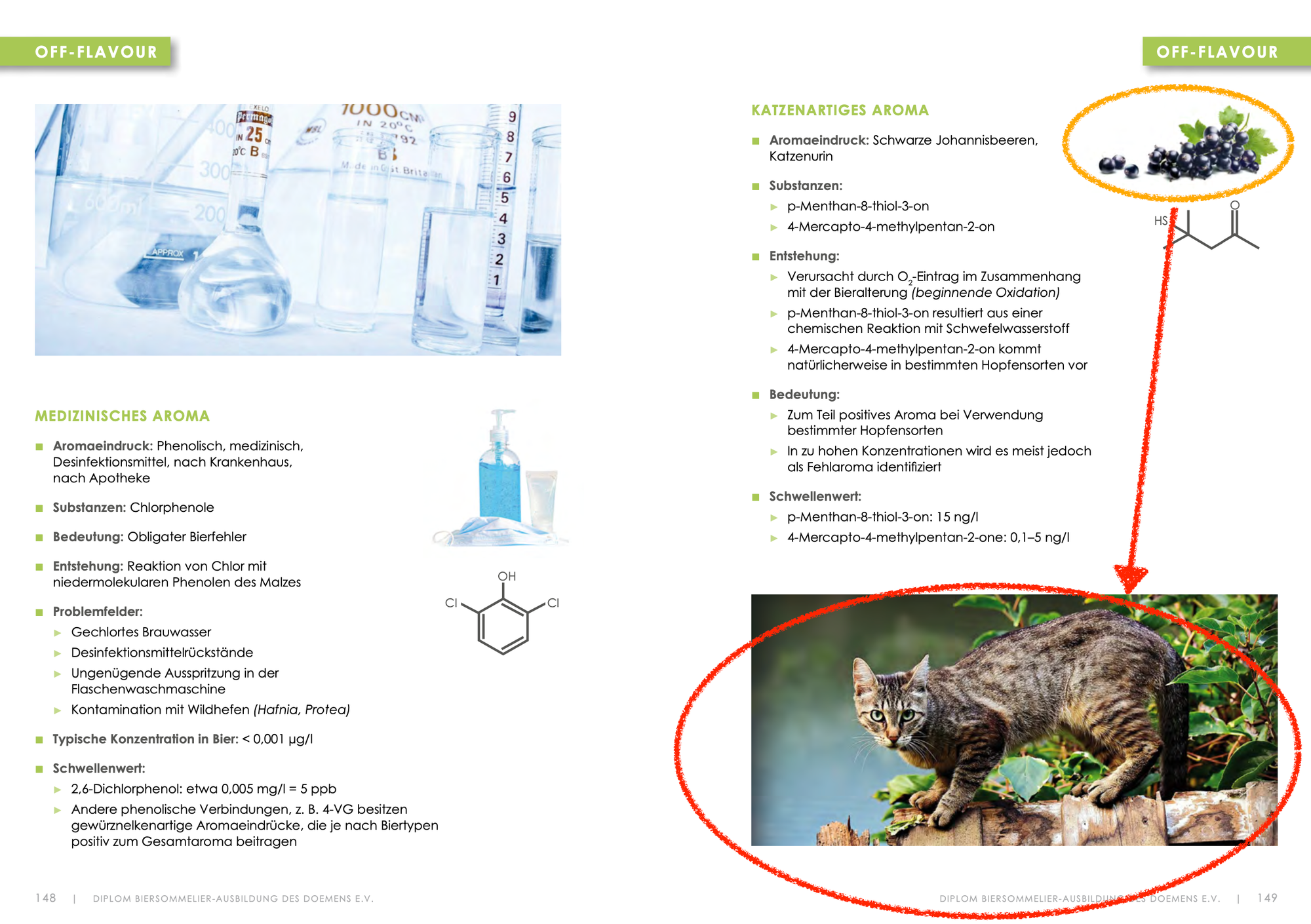
Let me get technical for a second.
The brain works like a computer. It has a variety of sensors and when these sensors pick up signals, they feed the information to the computer in our skull 🧠
The way we perceive taste/flavor is when our sensors (tongue; nose; etc.) get triggered by certain stimuli (e.g. a molecule like p-Menthan-8-thiol-3-on flying into our nose and tickling a smell receptor). This information is then translated in our brain into a flavor association (e.g. "cassis").
All of us have physiological differences but - generally speaking - our senses have standard operating ranges (measured by thresholds):
- Below threshold: We don't perceive the stimulus
- Above perceivable threshold: We perceive the stimulus
- Above pleasurable threshold: We perceive the stimulus negatively
The thing about these thresholds is that they can be absolute and relative. In absolute terms, what matters is the amount of stimulus you receive on the sensor. In relative terms, what matter is the amount of attention you pay to the stimulus.
And this is exactly what happened to me. The lady behind the bar shared a subjective opinion, which in turn led me to focus on a particular flavor (cat piss). My brain had to verify or falsify. It couldn't resist.
So in relative terms, since I was paying a lot of attention to it, the stimulus was too intense and it tilted from a perceived pleasurable to a perceived unpleasurable experience.
What a waste of money. But an expensive lesson nonetheless.
I didn't tell my friend any of this until the very last sip. Then I primed him and told him to pay attention to the cat-piss flavor. He took a sip and said "nah... that's disgusting."
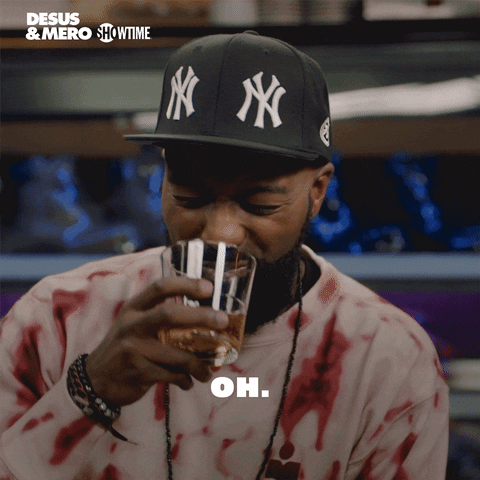
As researches have found:
We found using functional magnetic resonance imaging that activations related to the affective value of umami taste and flavor (as shown by correlations with pleasantness ratings) in the orbitofrontal cortex were modulated by word-level descriptors.
In short: What we see and what we hear impacts how our brains work.
Put differently: What we show and what we say impacts how our/others' brains work.
This is the actual value of what sommeliers do.
My working hypothesis: If you look at interactions through the lens of a sommelier, you can significantly impact how your audience perceives the world around them.
Applications for story telling, sales... or pretty much anything you can think of.
[Maybe this idea alone is worth a separate essay. Let me know.]
The (Unexpected) Power of Learning
Sometimes, when I explain that isoamyl acetate is the reason why Hefeweizen beer tastes like banana, I have to pinch myself. How do I know such details despite only having been in class for two weeks.
Yes, if you learn something, by the end of the experience, you probably know something. But this experience taught me three generally-applicable lessons:
#1: Compression
One of my favorite stories about learning is from Derek Sivers. He managed to skip two years of coursework for Berklee School of Music by attending a few lessons with a great teacher.
Kimo’s high expectations set a new pace for me. He taught me that “the standard pace is for chumps” — that the system is designed so anyone can keep up. If you’re more driven than most people, you can do way more than anyone expects. And this principle applies to all of life, not just school.
Everything matters when you learn: The material, the sequence, the intensity, the application, and so on.
Two weeks of training at Doemens Academy gifted us technical, practical, and historical knowledge that none of us could have expected. To this day, when I explain the 80/20 of Beers to my friends, it's hard for me to believe that all it took was two-weeks of all-out effort (and a lot of help from our instructors).
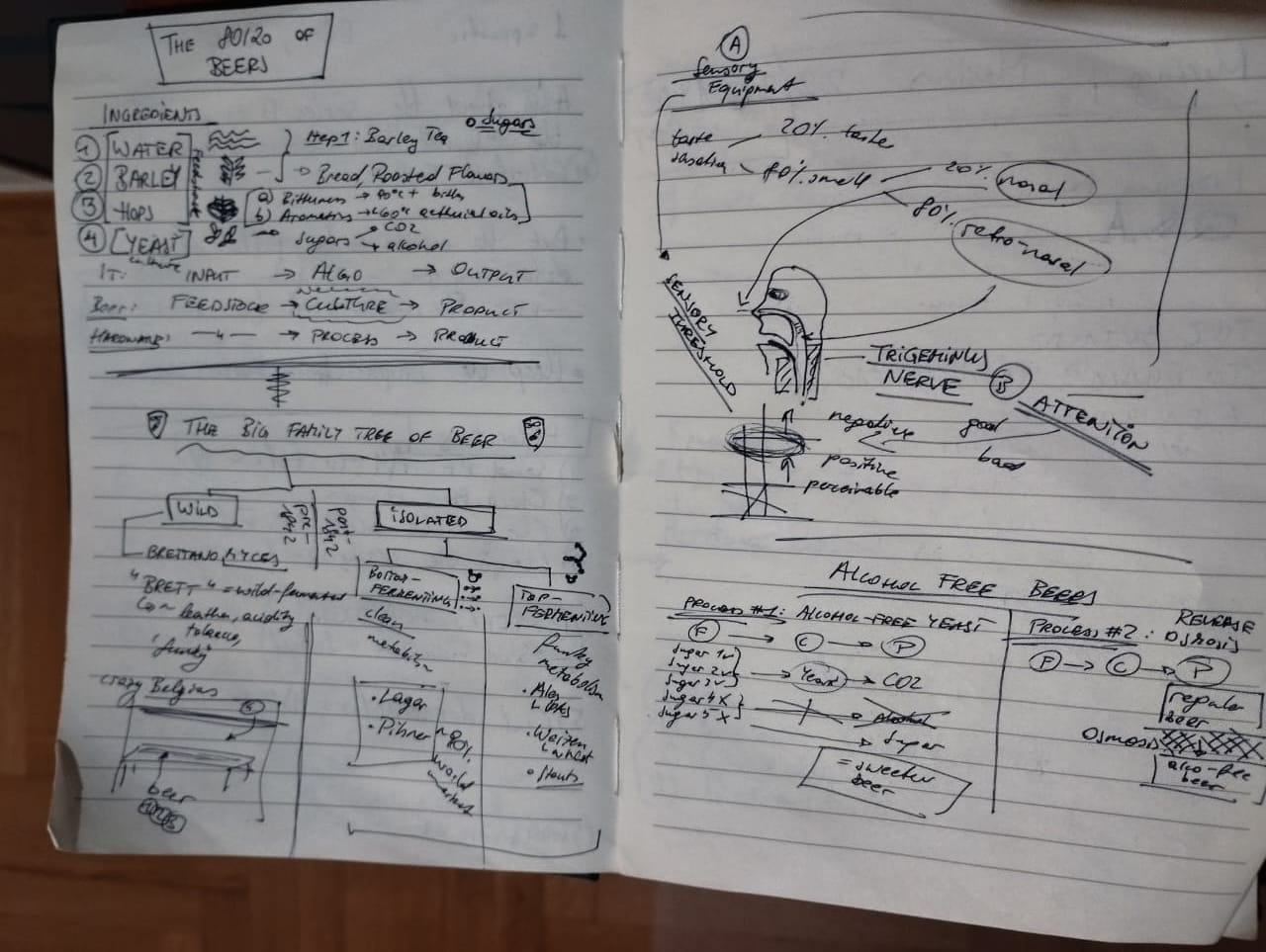
Which brings me to the next point.
#2: Interest in Technical Fields
This two-week experience showed me that I had what it took to learn technical matters. I always had the desire. But this really gave me the belief that I could do it.
As crazy as it sounds, I'm convinced that learning about beer opened my mind to the real possibility of going back to a technical school.
As fate had it, later, I applied to, started studying, and eventually graduated with a degree in Energy Law at the Technical University of Berlin.
Three years later, I have an climate/energy-related newsletter going out to 3,000+ readers, hosted panels at a climate conference, and am an Independent Board Member of a fast-growing software company in the energy space.
Crazy.
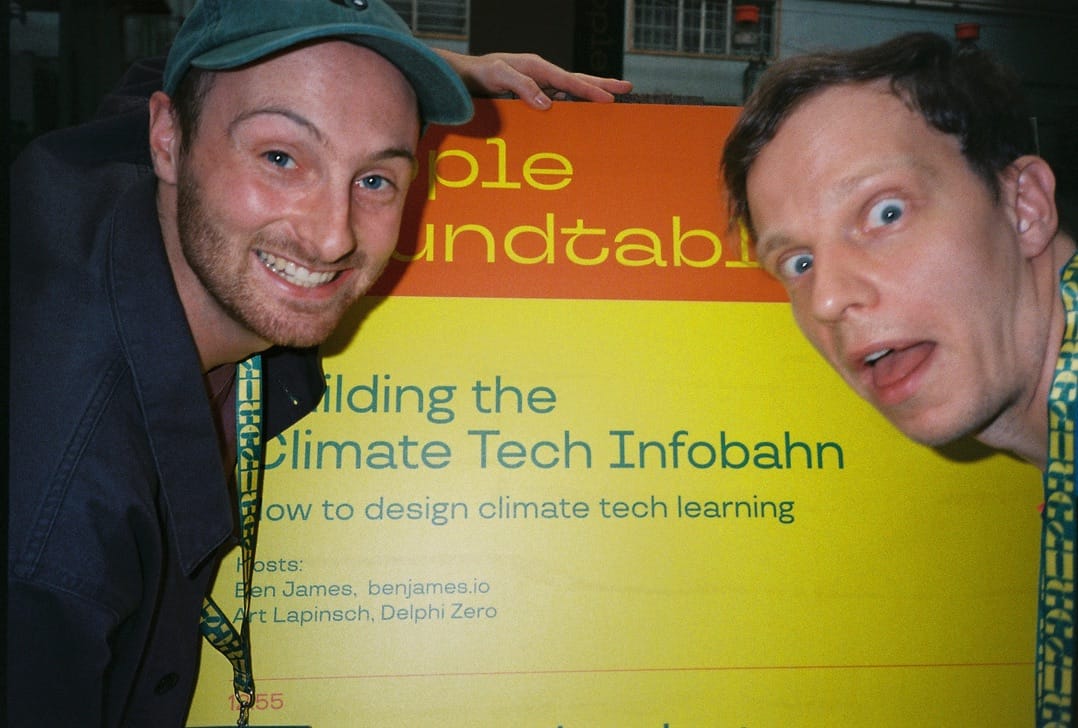
#3: Opportunity and Transferability
Something more expected is the transferability of acquired skills. Nonetheless it came in unexpected places.
The learning about fermentation in general and yeast strains in particular opened up the entire field of micro-biology and its applications in industry and frontier science.
I remember at some point reading a pitch deck of a precision fermentation company and by looking at a picture of a microscopic sample, I was able to tell that we're looking at a yeast.
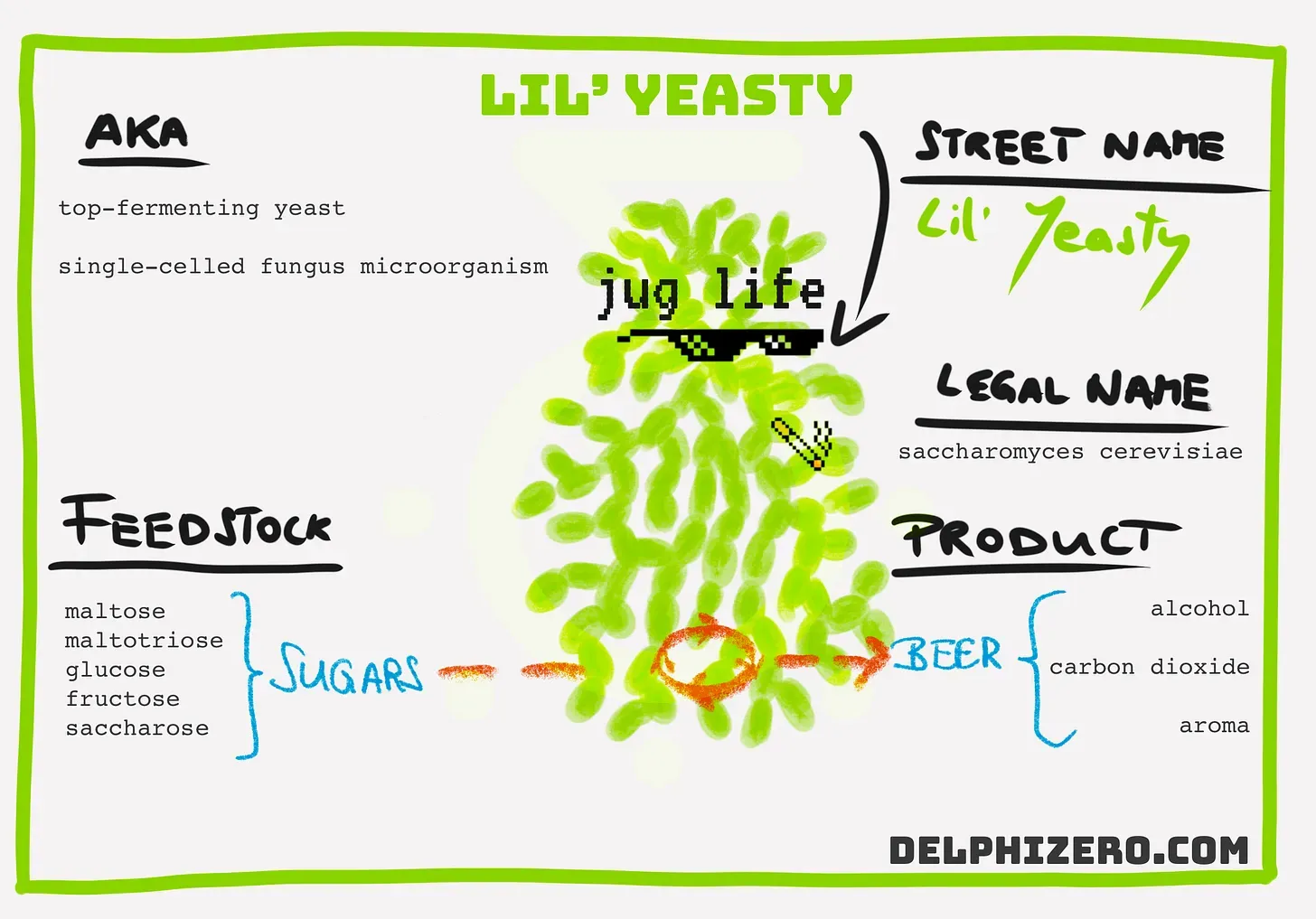
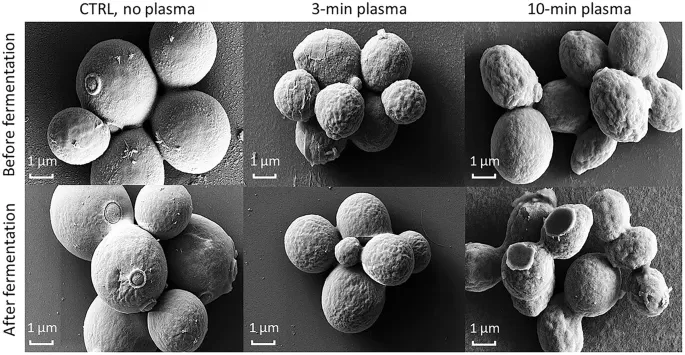
My own illustration about beer (left) vs. magnified
This might not seem like much, but previously, I would have most likely thought to myself "this is biology and too hard to understand" and skipped to the next slide. Instead, my limited - yet contextually-relevant - knowledge gave me a conceptual frame to start asking further questions:
- What type of culture (yeast) are we talking about?
- What's the desired outcome?
- What's the mechanism?
- etc.
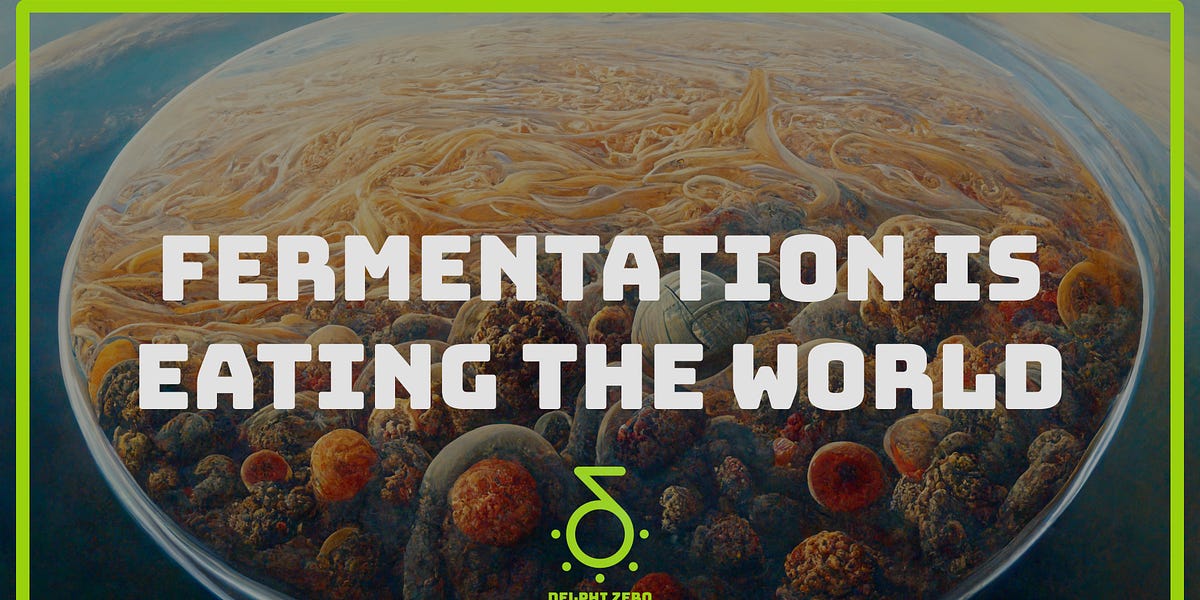
This is just one of many examples. You never know how new skills and knowledge will be applicable in the future.
It's difficult to connect the dots looking forward. But looking back, oh boy, does it make sense.
What's Next?
I hope that some of this is resonating with you. Maybe you even learned a thing or two.
In the next essays, I plan to write about:
- Part 2: Think of Batman Begins but for Beer Sommeliers → The course work, the final exams, and some other observations about learning at the Doemens Academy.
- Part 3: I'll (finally) turn the scribbles you've seen before - my 80/20 of Beer - into a structured blog post so that next time I can just share a link instead of giving a 30-minute monologue. Unless, of course, they want to hear me speak 🤷♂️
- ...maybe more... who knows.
If you're already a subscriber, great. If not, consider signing up to get the next essays in your inbox.
Also, if you have questions, feedback, criticism, or just want to say hi, as always, drop me an email or connect with me via LinkedIn.
Prost ✌️
Art


